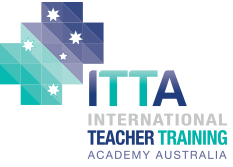ITTA Discussion Forum
The International Teacher Training Academy (ITTA) was established in response to government initiatives which focus on improving the skills of teachers at all levels of education and address the current shortage of teachers with higher level qualifications.The staff of the Academy believed there was a need for highly experienced educators to train quality teachers. We want to share our passion, enthusiasm and experience with others to inspire them to do the same.
What is Mentoring?
Mentoring is a relationship between the mentor and the mentee (the person being mentored). The purpose of a mentoring relationship is to assist the mentee to develop their career, using a wide range of methods over a specified term. The role of a mentor is to facilitate the professional growth
Workplace-based learning
Learning at work is about embedding learning into daily work processes. Rich learning opportunities occur regularly on-the-job through work assignments and feedback from supervisors, coaches, mentors or peers; but the learning component is often inconsistent and inadequately planned. The workforce of an organisation is likely to be its major operational
TAE50122 Diploma of Vocational Education and Training – Update
What do you see as the biggest barriers to fostering originality and creativity in students? Read more
“Trainers are born, not made”
What do you see as the biggest barriers to fostering originality and creativity in students? Read more
Professional Development Blogs
What do you see as the biggest barriers to fostering originality and creativity in students? Read more
Critical Thinking
Lorem ipsum dolor sit amet, consectetur adipiscing elit. Sed auctor lacinia tellus nec accumsan. Praesent bibendum egestas felis, nec mattis ex. Read more
BSBSTR502 Facilitate Continuous Improvement – The Need for Continuous Improvement
Continuous improvement is an ongoing effort to improve systems, processes and people. Continuous improvement is seen as a process of constant, incremental improvements rather than major strategic change. It is depicted as a cycle, rather than a straight line, because a circle has no end. Continuous improvement is a cycle
Sparking Creativity
Share your ideas and resources here including any valuable links to resources. Read more
Outdated Traditions and Sacred Cows
Think about the context of the team you are working in and the system of education you are a part of. Read more
4 New Paradigms for Pedagogy
Which of these paradigm shifts will be the most challenging in your context and why? Read more


